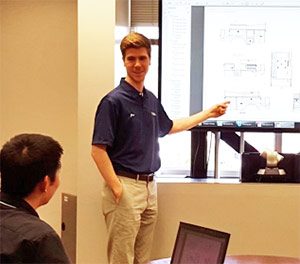 Joseph Schindler, a mechanical engineering major, from Del Rio, Tennessee, worked as a co-op student at Altec Industries in Burnsville, North Carolina. He worked specifically in the quality department. His day-to-day responsibilities were to perform inspections of parts when they were received and performed audits of associate’s gauges to ensure they are working correctly.
Joseph Schindler, a mechanical engineering major, from Del Rio, Tennessee, worked as a co-op student at Altec Industries in Burnsville, North Carolina. He worked specifically in the quality department. His day-to-day responsibilities were to perform inspections of parts when they were received and performed audits of associate’s gauges to ensure they are working correctly.
Schindler’s favorite project was to create a new system for testing one particular product that came in and is now creating a new standard because of it. He also helped to update standard operating procedures. He was given the opportunity to learn more about CAD (Solidworks) and welding projects with a blow torch and plasma torch.
Schindler’s monthly responsibility was to give a monthly report about gauges during the quality meeting in front of all the managers, many of the supervisors and some engineers. This was a difficulty to him as he does not like to speak publically in front of large groups, but this gave him the opportunity to come out of his comfort zone and to learn how to be prepared efficiently for larger meetings. The most valuable part he took away from his rotation was the actual opportunity to work in the field before he graduates to get a feel on how the workforce works.
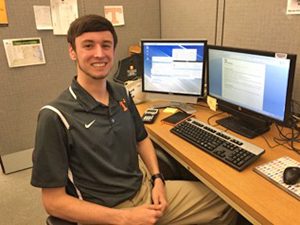 The featured student this week is Jonathan Farmer, a Nuclear Engineering major from Tullahoma, Tennessee, who worked as a co-op student at Dominion in Richmond, Virginia.
The featured student this week is Jonathan Farmer, a Nuclear Engineering major from Tullahoma, Tennessee, who worked as a co-op student at Dominion in Richmond, Virginia.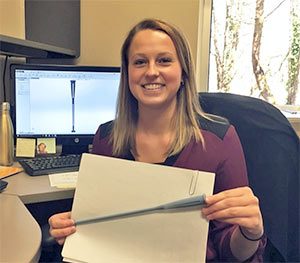 The featured student this week is Jillian Schwendeman, a biomedical engineering major from Marietta, Ohio, who worked as a co-op student at ChoiceSpine in Knoxville, Tennessee.
The featured student this week is Jillian Schwendeman, a biomedical engineering major from Marietta, Ohio, who worked as a co-op student at ChoiceSpine in Knoxville, Tennessee.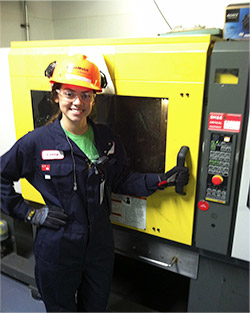 The featured student this week is Cassandra Finney, a chemical and biomolecular engineering student from Clarksville, Tennessee, who worked as a co-op student at Exxon Mobil Chemical Plant.
The featured student this week is Cassandra Finney, a chemical and biomolecular engineering student from Clarksville, Tennessee, who worked as a co-op student at Exxon Mobil Chemical Plant.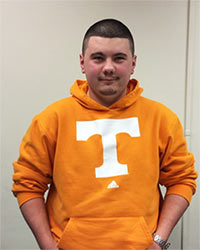 The featured student this week is Christopher Scott, a chemical engineering major from Loudon, Tennessee, who worked as a co-op student at SABIC Innovative Plastics in Mt. Vernon, Indiana.
The featured student this week is Christopher Scott, a chemical engineering major from Loudon, Tennessee, who worked as a co-op student at SABIC Innovative Plastics in Mt. Vernon, Indiana.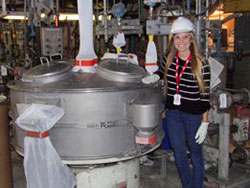 he featured student this week is Brooklyn Browner, a chemical engineering major from Hendersonville, Tennessee, who worked for the Dow Chemical Company in Hahnville, Louisiana.
he featured student this week is Brooklyn Browner, a chemical engineering major from Hendersonville, Tennessee, who worked for the Dow Chemical Company in Hahnville, Louisiana.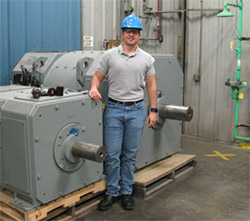 The featured student this week is Benjamin Hopkins, a chemical engineering major from Greeneville, Tennessee, who worked as a co-op student at SABIC Innovative Plastics in Bay St. Louis, Mississippi.
The featured student this week is Benjamin Hopkins, a chemical engineering major from Greeneville, Tennessee, who worked as a co-op student at SABIC Innovative Plastics in Bay St. Louis, Mississippi.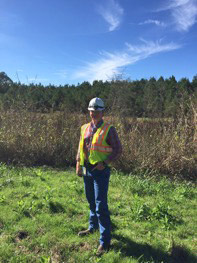 This week’s featured student is Christopher Dias, a mechanical engineering student, from Cookeville, Tennessee, who did a co-op rotation with Southern Company in Cartersville, Georgia.
This week’s featured student is Christopher Dias, a mechanical engineering student, from Cookeville, Tennessee, who did a co-op rotation with Southern Company in Cartersville, Georgia.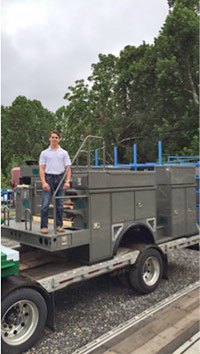 This week’s featured student is Austin Gomez, a mechanical engineering major, from Maryville, Tennessee. He worked as a coop student with Altec Industries in Burnsville, North Carolina.
This week’s featured student is Austin Gomez, a mechanical engineering major, from Maryville, Tennessee. He worked as a coop student with Altec Industries in Burnsville, North Carolina.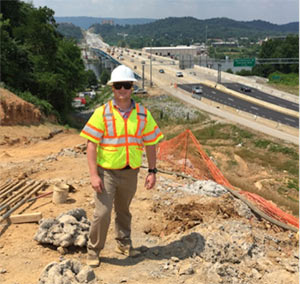 Our featured student this week is Neil Scruggs, a civil engineering major who worked in the construction division of TDOT under the director and the five assistant directors in all four regions of the State of Tennessee. His responsibilities were to give assistance to his superiors, which in turn taught him how the day-to-day operations run on the job.
Our featured student this week is Neil Scruggs, a civil engineering major who worked in the construction division of TDOT under the director and the five assistant directors in all four regions of the State of Tennessee. His responsibilities were to give assistance to his superiors, which in turn taught him how the day-to-day operations run on the job.